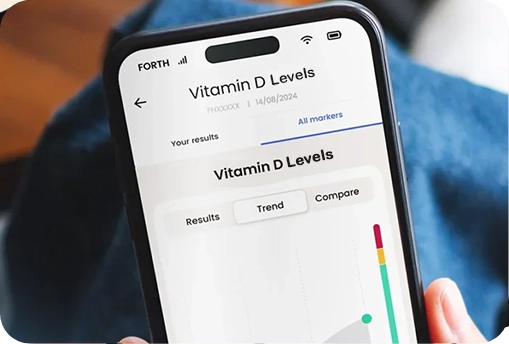
- Iron: The amount of iron circulating in your blood
- Ferritin: A protein that stores iron — an early and accurate marker of iron deficiency
- Transferrin & TIBC: Indicate how much iron your blood can carry and bind
- Transferrin Saturation: Shows how much transferrin is actually carrying iron — helps identify both deficiency and overload
















